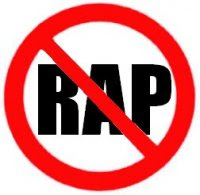E.J. Dionne posted a great commentary today on Truthdig.
The Politics of Stupidity Strikes Again
Can a nation remain a superpower if its internal politics are incorrigibly stupid?
Start with taxes. In every other serious democracy, conservative political parties feel at least some obligation to match their tax policies with their spending plans. David Cameron, the new Conservative prime minister in Britain, is a leading example.
He recently offered a rather brutal budget that includes severe cutbacks. I have doubts about some of them, but at least Cameron cared enough about reducing his country’s deficit that alongside the cuts, he also proposed an increase in the value-added tax from 17.5 percent to 20 percent. Imagine: a fiscal conservative who really is a fiscal conservative.
That could never happen here because the fairy tale of supply-side economics insists that taxes are always too high, especially on the rich.
This is why Democrats will be fools if they don’t try to turn the Republicans’ refusal to raise taxes on families earning more than $250,000 a year into an election issue. If Democrats go into a headlong retreat on this, they will have no standing to govern.
The simple truth is that the wealthy in the United States—the people who have made almost all the income gains in recent years—are undertaxed compared with everyone else.
Consider two reports from the Center on Budget and Policy Priorities. One, issued last month, highlighted findings from the Congressional Budget Office showing that “the gaps in after-tax income between the richest 1 percent of Americans and the middle and poorest fifths of the country more than tripled between 1979 and 2007,” the period for which figures are available.
The other, from February, used Internal Revenue Service data to show that the effective federal income tax rate for the 400 taxpayers with the very highest incomes declined by nearly half in just over a decade, even as their pre-tax incomes have grown five times larger.
The study found that the top 400 households “paid 16.6 percent of their income in federal individual income taxes in 2007, down from 30 percent in 1995.” We are talking here about truly rich people: Using 2007 dollars, it took an adjusted gross income of at least $35 million to get into the top 400 in 1992, and $139 million in 2007.
Read the Full Commentary from Truthdig.
Wednesday, July 28, 2010
Subscribe to:
Post Comments (Atom)














No comments:
Post a Comment